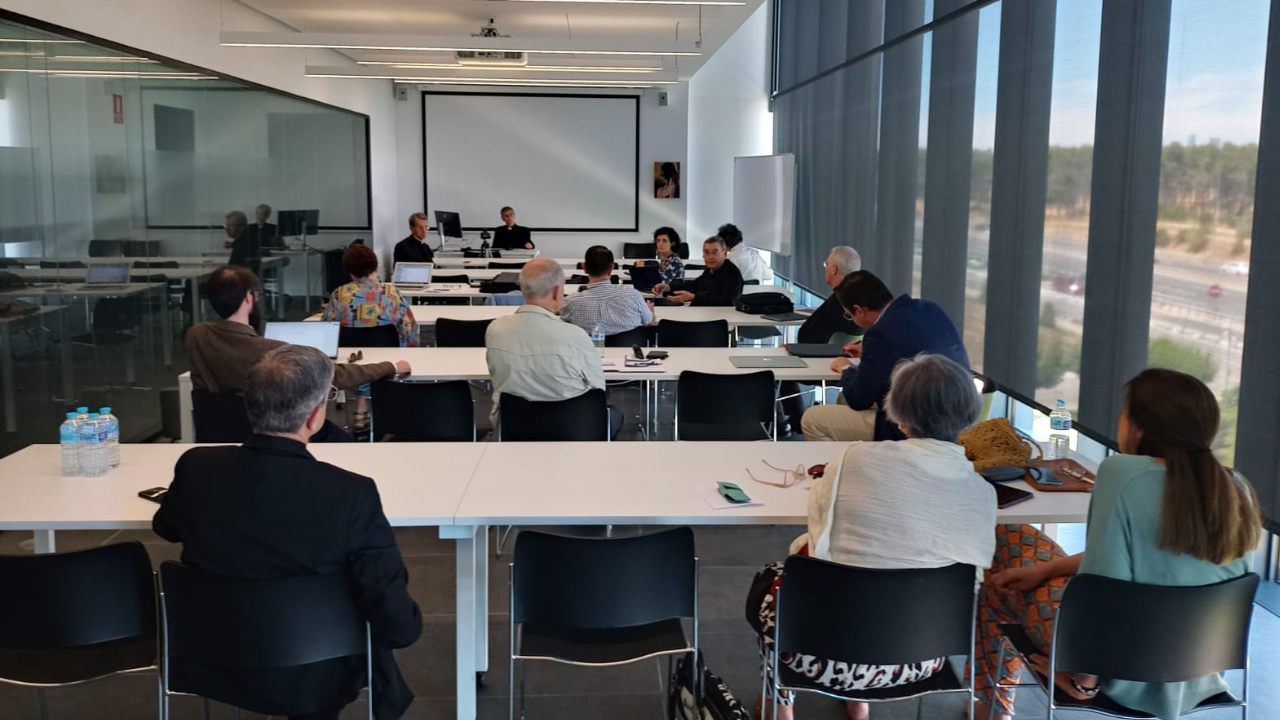Workshop: University Residences and Opus Dei, 1939-1962
The headquarters of the University of Navarra in Madrid was the scene of a workshop on university residences and Opus Dei, in which academics from various universities participated.

17 | 06 | 2024
Last Friday, June 14, in the Master's Building of the University of Navarra in Madrid, a workshop on Opus Dei university residences took place. Seventeen academics from various universities participated in this meeting.
Among the topics discussed, the importance of the framework juridical. In the Spanish context, the conversion of residences into halls of residence was discussed based on a 1951 law and whether this represented a significant step at that historical moment.
The different roles of these residences were also highlighted, including their importance as a showcase or card of visit of the Work before the civil and ecclesiastical world. Its international dimension was particularly active at the Residenza Universitaria Internazionale (RUI) in Italy, visited by Cardinals Montini, Luciani and Wojtyla, before becoming Paul VI, John Paul I and John Paul II.
What motivation led to the creation of these university residences was another point of analysis, as well as the perspective compared with similar models, such as those promoted by St. Pedro Poveda, founder of the Teresian Association and a great friend of St. Josemaría.
It was also about the prominence of some figures core topic, such as Amadeo de Fuenmayor and Laureano López Rodó (La Estila, Galicia), Guadalupe Ortiz de Landázuri and Gloria Toranzo (Zurbarán, Madrid), or Pedro Casciaro (La Moncloa, Madrid).
Likewise, the uniqueness of the residences in promote a family environment, an aspect little explored in previous research, as Inmaculada Alva pointed out.
Another distinctive aspect was the presence of numeraries who, by living in these spaces, reflected the message that was sought to be disseminated, characterized by their family environment and the absence of formative political biases, which were present in some other similar institutions.
Finally, the international dimension of some residences was analyzed, especially the RUI, which welcomed students from 49 countries in its first years of existence, showing its global influence.
This workshop not only highlighted the importance of Opus Dei's university residences between 1939 and 1962, but also opened up new perspectives for future research in this field.




